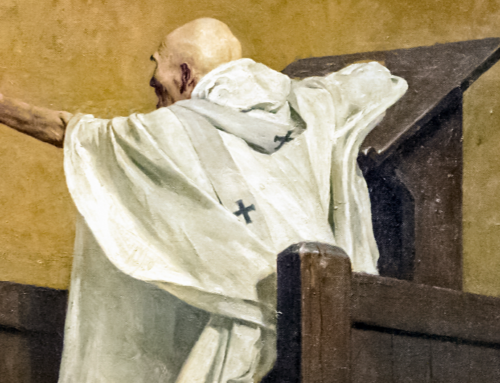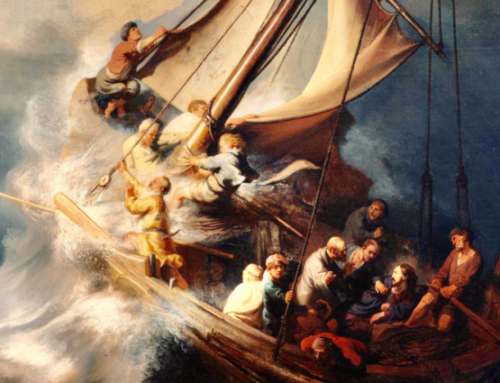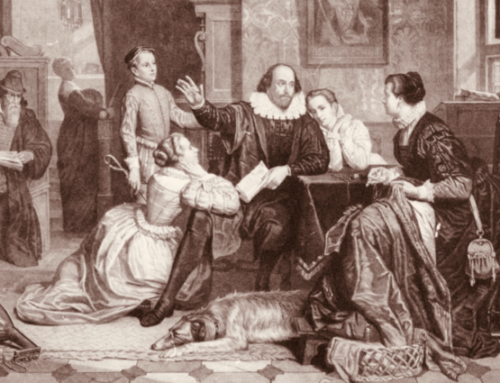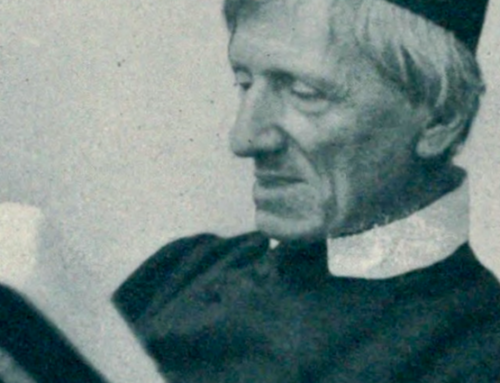The origins of human things are flawed, no question, and inequalities remain. But should we not try to honor the principles of Washington or Jefferson and distinguish them from the prejudices of the day that they shared?
 The curriculum at Wyoming Catholic College has much wisdom to offer in the current crisis, much that should remind us of the passions of faction and of the great good of political reason. If the threat to our Republic were not so severe, the nature of recent protests would verge on the comical. Anyone in the past who reflected the (largely unexamined) assumptions of his time—the shadows in the allegory of the cave (Plato’s Republic, freshman year)—must now be rejected, their statues torn down, their influence repudiated. A statue of Columbus has been beheaded, a statue of St. Junipero Serra toppled, statues of Presidents George Washington, Thomas Jefferson, and U.S. Grant pulled down because they were slaveholders. This repudiation is part of an ongoing attempt, it seems, to characterize America per se as rotten because of the existence of race slavery at the beginning of our national identity.
The curriculum at Wyoming Catholic College has much wisdom to offer in the current crisis, much that should remind us of the passions of faction and of the great good of political reason. If the threat to our Republic were not so severe, the nature of recent protests would verge on the comical. Anyone in the past who reflected the (largely unexamined) assumptions of his time—the shadows in the allegory of the cave (Plato’s Republic, freshman year)—must now be rejected, their statues torn down, their influence repudiated. A statue of Columbus has been beheaded, a statue of St. Junipero Serra toppled, statues of Presidents George Washington, Thomas Jefferson, and U.S. Grant pulled down because they were slaveholders. This repudiation is part of an ongoing attempt, it seems, to characterize America per se as rotten because of the existence of race slavery at the beginning of our national identity.
There is a point to be made, no question. I grew up in the Jim Crow South of the 1950s and early 1960s, and I know what real racism looks like. I also know how much has changed. These days, it seems, it is naïve to be moved by Martin Luther King’s “I Have a Dream” speech from 1963: “I have a dream that my four little children will one day live in a nation where they will not be judged by the color of their skin but by the content of their character.” No, the protesters now insist, nothing has changed; racial injustice persists. But I cannot understand what good is served when the color of one’s skin remains the constant emphasis of protest. It seems evident that reiterated appeals to victimization only accentuate differences and exacerbate a smoldering resentment in those shouted to silence and accused en masse of prejudice.
Perhaps there has never been a moment quite like this one in history, simply because of the visible history of the “peculiar institution” of slavery in a nation consciously and explicitly founded on the principles of liberty. And yet the proposed solution is to abandon those principles. The impulse seems to be to trace back the bad influence of our founding assumptions to those who first embodied them and then cancel those evildoers—and then what? To whom do we look in this political climate for the high political wisdom necessary for a new founding? W.H. Auden’s line about a “low, dishonest decade” has never seemed more apt.
History amply demonstrates that origins are always flawed. Rome, for example, began with Romulus’s murder of his brother and with the rape of the Sabine women. The question to ask is whether the founding enterprise was worthwhile despite its flaws. Nowhere is this questioning more explicit than in Milton’s Paradise Lost, which the Wyoming Catholic College juniors read in the same semester as texts of the Enlightenment and the French Revolution.
The extraordinary thing about the presentation of Adam in the poem is that in Book X he reflects explicitly on what it means to be the flawed origin, not just of a nation, but of the human race itself. After the Fall, Adam comes to a full recognition of the miseries he will bequeath upon his offspring:
O voice once heard
Delightfully, Increase and multiply, [730]
Now death to hear! for what can I increase
Or multiply, but curses on my head?
Who of all Ages to succeed, but feeling
The evil on him brought by me, will curse
My Head, Ill fare our Ancestor impure, [735]
For this we may thank Adam…
Adam’s very first thought after perceiving how thoroughly he would be cursed by his own progeny is to blame his own origin:
Did I request thee, Maker, from my Clay
To mold me Man, did I solicit thee
From darkness to promote me, or here place [745]
In this delicious Garden? as my Will
Concurred not to my being, it were but right
And equal to reduce me to my dust,
Desirous to resign, and render back
All I received, unable to perform [750]
Thy terms too hard, by which I was to hold
The good I sought not. To the loss of that,
Sufficient penalty, why hast thou added
The sense of endless woes? inexplicable
Thy Justice seems…
The passage seems altogether appropriate for the present day. To my mind, the real questions being raised in the current political climate are not political at all, but metaphysical and religious. Did I ask to exist? And, more than that, did I ask to exist in this way, burdened with this history, subject to these limitations? No, many say, and their arguments center on the individual will, which has become unquestionably sovereign, and even more important to many than God or country. Tellingly (though they would never admit it), this notion of individual will is greatly subject to manipulation by academic elites, who weaponize their assumptions against the Republic while trusting that those who follow will be too timid to examine them.
Those most vocally condemning American origins enjoy conditions of opportunity unexampled in human history, not least free speech and freedom of assembly. “Wilt thou enjoy the good, / Then cavil the conditions?” Adam asks himself in self-reproach. The origins of human things are flawed, no question, and inequalities remain. But should we not try to honor the principles of Washington or Jefferson and distinguish them from the prejudices of the day that they shared? The alternative seems to be like Eve’s suggestion to Adam that they abort the future. In our case, that will mean not only a continued, almost sacred privileging of literal abortion, but also the interpretation of hard-earned American principles of liberty as viral carriers of racism and injustice. Best wear that mask.
Republished with gracious permission from Wyoming Catholic College’s weekly newsletter.
The Imaginative Conservative applies the principle of appreciation to the discussion of culture and politics as we approach dialogue with magnanimity rather than with mere civility. Will you help us remain a refreshing oasis in the increasingly contentious arena of modern discourse? Please consider donating now.
The featured image is a detail from God Judging Adam (1795) by William Blake (1757–1827) and is in the public domain, courtesy of Wikimedia Commons. It has been brightened for clarity.







These revolting folks are without redemption, I fear. And beyond reasoning, history and love.